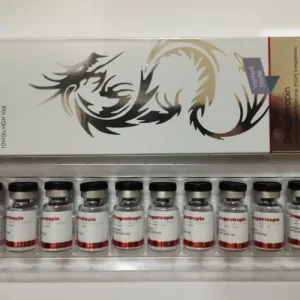Supplements
Protein Powder Supplement Comparison – Which Type To Choose?

Introduction
In this article, we will talk about protein powders. You already know that you should increase your protein intake and train hard to build more muscles. In the day, choosing used to be easy, as we only had whey. However, there are so many different kinds of protein powders today it is becoming increasingly challenging to decide which one to take. This article will give you essential information about different protein types, which will help you with decision-making. Let's go!
First Things First: Protein Powder Purity
We will get into different protein sources later, but let's first tackle one thing they all have in common: powder purity. Based on the amount of pure protein compared to everything else in the powder, we have protein concentrates, isolates, and hydrolysates.
Concentrate
Back in the day, there was a massive difference between concentrates and isolates, but you can expect the best concentrates to have more than 80% of protein, with the rest coming from carbs and fat. Considering the price, concentrates are the best option for most people who want to add some muscle mass and don't mind the extra calories from other sources.
Isolate
Protein concentrate that goes through more filtering becomes protein isolate. Every good protein isolate has 90% protein or more, with the best ones reaching 95%. Protein isolates are the best option for people looking to cut or those who are carefully monitoring their diet, for example, those following a keto regimen. They are more expensive than concentrates, though.
Hydrolysates
Hydrolysates are isolates that are processed with enzymes, which improves their absorption, which means they end up in your muscles more quickly. They are the purest protein form but also the most expensive.
Blends
We also have blends, which mix proteins from different sources. However, you need to be careful with these, as they are often the tools companies use to trick consumers. So, for example, if you buy a concentrate and isolate blend, that is a concentrate. And if you purchase blends of different protein sources, read the label carefully. Companies will usually use the lowest quality protein to fill up the content. And whenever you see "proprietary blend" on a label, it is probably best to avoid the supplement, as you never know exactly what's in there.
Must read:: Whey Protein Explained: Isolate, Concentrate and Hydrolysate
Animal Protein Powders
The Reign King: Whey Protein Powder
Whey always was, and still is the best protein powder. Whey is derived from milk in the process of making cheese. The liquid is later processed, and we get whey protein powder. What makes whey the best protein powder supplement is its composition as it is a complete protein source containing all nine amino acids. Furthermore, it is highly bioavailable, which means our body can use most of it, which is a problem with some other protein sources. Whey protein is also highly satiating, which means it will keep you full for longer, helping you stay on your diet plan if you drink protein instead of snacking. Another benefit of whey is that it is one of the most widely spread protein sources, with many manufacturers making quality whey supplements. Whey is nothing new and is one of the most budget-friendly protein powder options.
Casein: Whey's Closest Cousin
So if whey is the king, casein is the king's brother, as it is also derived from milk. But there is one major difference: casein is a "slow" protein. What that means is that casein protein doesn't get absorbed immediately. Instead, the amino acids are released into the bloodstream over a prolonged period, giving your muscles a more steady protein supply. Lifters like to use casein before bed, in order to "stay anabolic" during sleep. That's why it is a good idea to take casein alongside whey. But, if you compare the two directly, whey is a better option, so if you can only take one, pick whey, mainly because they are both milk derivates.
Look No Further, Unless...
So whey is the best protein powder option, and casein is its perfect partner. A premium fast+slow protein, like a one-two punch, right? Well, not for everyone. Both whey and casein are proteins derived from milk, which is a problem for some people.
First, milk is an animal product, which makes these two proteins a big no-no for vegans. The same goes for the egg, beef, or any other protein powder that comes from animal sources. Second, people who are lactose-intolerant might have issues digesting proteins that come from milk. Even though you can try with isolates and hydrolysates which should not contain any lactose, you might find whey/casein problematic to digest. If that is the case, but you still want to up your protein intake, you will have to turn to plant protein sources.
Must Read:: Do Bodybuilding Supplements Really Work?
Plant Protein Powders
Hemp Protein
Hemp is an easy to absorb plant protein which is rich in fiber, but also healthy, unsaturated fats. What's more, those fats have an excellent omega-6 to omega-3 ratio, which is incredibly healthy. Because this protein is rich in fiber, it positively influences the digestive tract and sugar levels, helping you stay full for longer. But, the hemp protein has one major issue, as it is lacking one of the essential amino acids, lysine. Therefore, you either opt for a protein blend or eat lysine-rich foods alongside your hemp powder, such as avocados or tomatoes.
Pea Protein
Pea protein powder is rich in BCAAs, amino acids popular among bodybuilders. It also has very high protein content, and our body is able to utilize it to a great extent. Also, pea protein is also a good source of fiber, which means it is terrific for digestion. And it is hypoallergenic, which means it is safe for most people. Similarly to hemp protein, the pea protein is deficient in one essential amino acid, this time methionine. To correct this, you can include some methionine-rich foods such as Brazil nuts, or even rice protein powder.
Brown Rice Protein
Similarly to hemp, brown rice protein doesn't contain much lysine, so you need to combine it with other foods or protein sources. But, it has many muscle building and health benefits, giving you a reason to choose it as your go-to plant protein source. Rice is a good option because it is well-tolerated by many people, as it is hypoalergenic. Because pea protein is hypoallergenic too and has lycine, it is ideal to take rice+pea protein, if you want to have a "perfect" plant protein blend.
One To Avoid: Soy Protein Powder
When you look at the soy protein contents, it seems like a vegan gym bro's best friend, especially considering the price tag, as it is one of the most budget-friendly protein sources. When you compare it to other plant proteins that usually lack some amino acids, soy protein is complete, giving you all that your body needs. While it doesn't beat whey, it is a better protein source than casein. But, there are some significant issues with soy.
First, all soy available in the Western world is GMO. Yes, all proteins are not exactly whole foods, but knowing that the one you drink is 100%, GMO might be an issue for some. However, most meatheads reading WhatSteroids site don't care too much about staying natural, they only care about gains, so who cares about GMO if soy powder is protein-packed, complete, and incredibly cheap, right? Wrong.
The major issue with soy is that it contains phytoestrogens. When ingested, these compounds act like estrogen in our body and can negatively affect testosterone levels. For most meatheads, this is a huge red light. Raising estrogen levels can cause enlarged breasts, and we all know that steroid users often have issues with gynecomastia, even without consuming soy.
Conclusion
That was the most essential information about different kinds of protein powders you need to know. To summarize:
- If you want to gain weight and are not competing, protein concentrate is your best option, considering the price.
- If you are looking to cut, go for isolates, as they contain almost no carbs and fats.
- Also, if you are an athlete, competing, or have a big budget, go for hydrolyzates, as they are most easily digestible.
- Be cautious about blends, as they are often extremely low-quality, read the labels.
Sources:
- Not vegan? Then, whey is your number one choice, ideally combined with casein.
- Vegan, or lactose-intolerant? Your best option is probably pea protein but ideally combined with brown rice protein, as those two give you all the necessary amino acids.
- Avoid soy protein as it contains phytoestrogenes, which can mess with your hormone levels.
Of course, protein that you eat from real foods matters too, and you should always try to maximize it, using supplements to SUPPLEMENT your nutrition, not to replace it. And care about micronutrients too, like fiber, vitamins, minerals, as they often get overlooked by gym bros, who only care about protein/fat/carb ratio. That's it guys, read our other articles if you want to learn about each protein kind in deatail or any additional gym-related information.
Stay strong!
Bodybuilding Products
Exploring BPC-157 Healing Properties
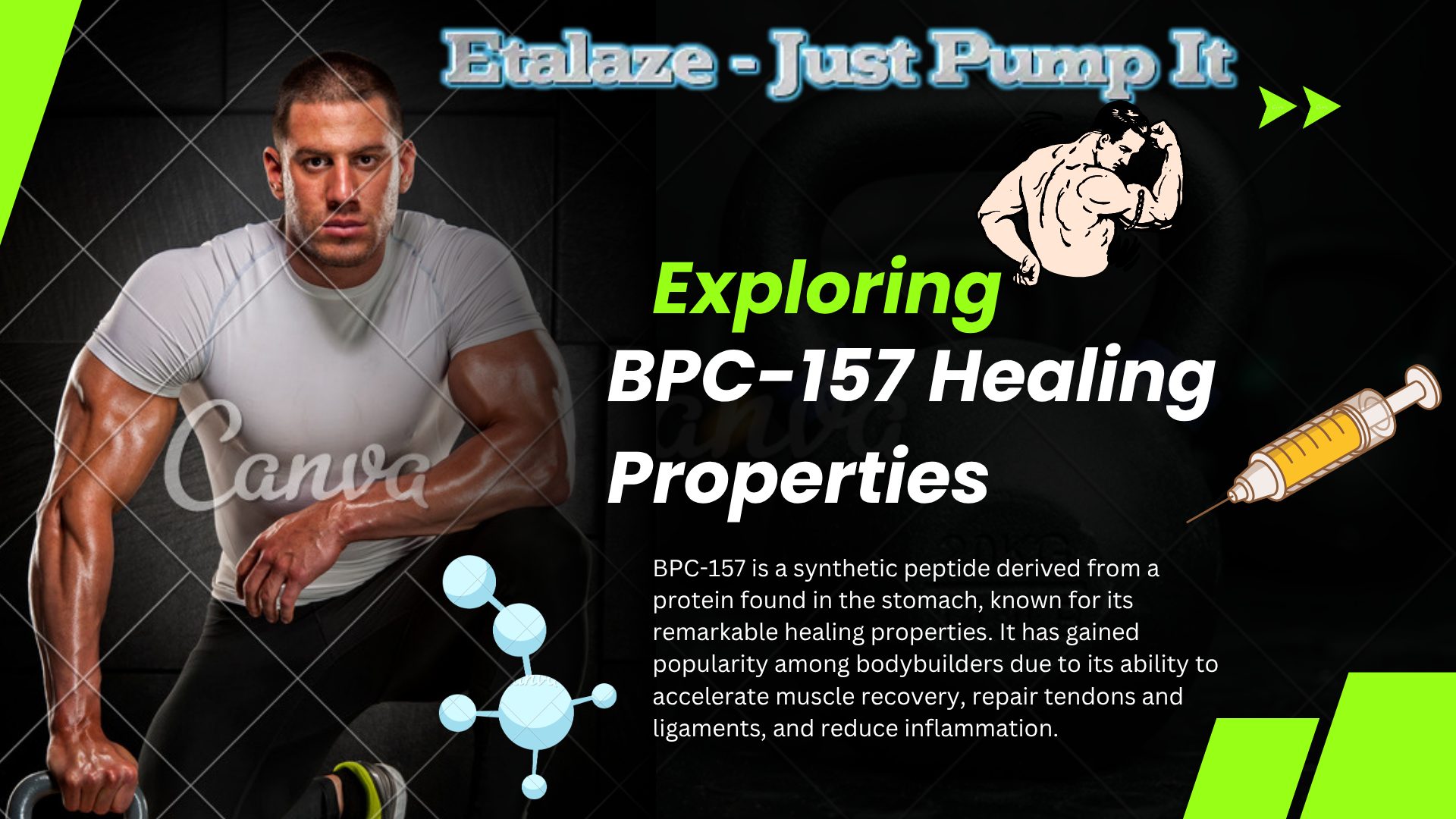
BPC-157 is a synthetic peptide derived from a protein found in the stomach, known for its remarkable healing properties. It has gained popularity among bodybuilders due to its ability to accelerate muscle recovery, repair tendons and ligaments, and reduce inflammation.
Key Benefits for Bodybuilders
Faster Recovery: Improves blood flow to damaged muscles, speeding up healing.
Injury Support: Strengthens connective tissues, reducing the risk of injuries.
Muscle Growth: Enhances collagen production, aiding in muscle repair and hypertrophy.
Pain Reduction: Has analgesic effects by elevating dopamine and serotonin levels.
Anti-Aging & Well-being: Supports tissue regeneration and overall health.
Must Read: New Arrival Workout Equipment on Amazon for the Disabled
How It Works
BPC-157 promotes angiogenesis, the formation of new blood vessels, which enhances nutrient delivery to injured tissues. It also blocks inhibitory growth factors, allowing for faster wound healing, especially in tendons.
Dosage & Usage
Most users take 200-400 mcg per day, typically in cycles of 4-6 weeks. It can be administered orally or via injection, with injections often preferred for localized healing.
Potential Risks Associated With BPC-157
BPC-157 is widely praised for its healing properties, but its long-term safety remains uncertain due to limited human studies. Here are some potential risks:
Possible Side Effects
Headaches – you may experience mild headaches, especially when first starting.
Injection Site Reactions – Swelling, redness, or irritation can occur if injected repeatedly in the same area.
Digestive Issues – Nausea or vomiting may happen, particularly with oral administration.
Fatigue & Lethargy – Some users experience temporary tiredness.
Blood Pressure Changes – BPC-157 may influence blood pressure, though effects vary.
Hot Flashes – Due to its impact on blood vessel dilation, some users report warmth or flushing.
Regulatory Concerns
Not FDA-Approved – BPC-157 is classified as an experimental peptide, meaning its safety profile is not fully established.
Limited Human Trials – Most studies focus on animal models, leaving gaps in understanding its effects on humans.
Buying BPC-157 Online
 Buy BPC 157 10mg by Magnus Pharma
Buy BPC 157 10mg by Magnus Pharma
There are multiple online outlets selling BPC-157, but the quality varies significantly. Some of the more frequently mentioned sources include Peptide Sciences and Canada Peptide, among others.
How to Assess Quality
Purity & Testing – Look for vendors that provide HPLC (High-Performance Liquid Chromatography) testing to confirm purity.
Reputation & Reviews – Check forums like Reddit’s Peptides community for user experiences.
Source & Manufacturing – Prefer vendors that source from reputable labs rather than unknown suppliers.
Packaging & Stability – Ensure proper lyophilized (freeze-dried) storage to maintain peptide integrity.
Customer Support & Transparency – Reliable vendors provide batch testing results and clear product descriptions.
Here are some recommended vendors for BPC-157 that align with bodybuilding goals:
1. Explicit Supps
Reputation: Well-known in the bodybuilding community.
Quality Assurance: Uses independent lab testing to ensure purity.
Customer Service: Strong support and fast shipping.
Pricing: Competitive rates without compromising quality.
2. Evolve Medical Group
Specialization: Offers peptide therapies tailored for muscle recovery.
Muscle Growth Focus: Provides expert guidance on BPC-157 usage.
Medical Backing: Works with professionals to ensure safe administration.
3. Elive Health & Wellness
Comprehensive Approach: Focuses on muscle recovery and performance.
Stacking Advice: Helps users combine BPC-157 with other peptides.
Consultation Services: Offers personalized peptide therapy.
BPC-157 Stacking Ideas
Stacking BPC-157 with other peptides can enhance recovery, muscle growth, and overall performance. Here are some effective combinations:
1. BPC-157 + TB-500 (Tissue Repair & Recovery)
- Why? TB-500 promotes cell migration and angiogenesis, complementing BPC-157’s healing effects.
- Best for: Tendon, ligament, and muscle injuries.
- Dosage: BPC-157 (250-500 mcg/day) + TB-500 (2-5 mg/week).
2. BPC-157 + CJC-1295 + Ipamorelin (Muscle Growth & Recovery)
- Why? CJC-1295 and Ipamorelin boost growth hormone release, accelerating muscle repair.
- Best for: Muscle hypertrophy and recovery post-training.
- Dosage: BPC-157 (250-500 mcg/day) + CJC-1295 (100 mcg/day) + Ipamorelin (100 mcg/day).
3. BPC-157 + GHK-Cu (Skin & Joint Health)
- Why? GHK-Cu enhances collagen production, improving skin and joint health.
- Best for: Joint pain, skin elasticity, and anti-aging.
- Dosage: BPC-157 (250-500 mcg/day) + GHK-Cu (2-5 mg/week).
4. BPC-157 + MK-677 (Recovery & Sleep Optimization)
- Why? MK-677 boosts IGF-1 and growth hormone, improving sleep and recovery.
- Best for: Deep recovery, muscle growth, and fat loss.
- Dosage: BPC-157 (250-500 mcg/day) + MK-677 (10-25 mg/day).
- 1. General Timing Guidelines
- Morning: Best for peptides that enhance metabolism and recovery (e.g., MK-677, CJC-1295).
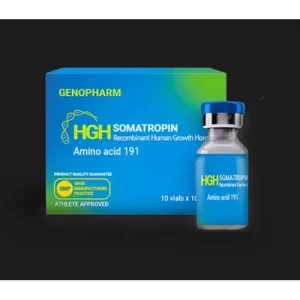 Click Here to Buy Genopharma HGH 100iu Kit
Click Here to Buy Genopharma HGH 100iu Kit
To maximize the benefits of BPC-157 and its stacked peptides, timing and cycling play a crucial role. Here’s how to structure your regimen effectively:
General Timing Guidelines
Morning: Best for peptides that enhance metabolism and recovery (e.g., MK-677, CJC-1295).
Pre-Workout: Ideal for peptides that boost performance (e.g., Ipamorelin).
Post-Workout: BPC-157 works best after training to accelerate muscle repair.
Before Bed: Peptides that stimulate growth hormone (e.g., CJC-1295 + Ipamorelin) should be taken 2 hours after the last meal.
Related Article: Tips on How to Store Peptides and HGH
Cycling Strategies
Standard Cycle: 4-6 weeks on, followed by 2-4 weeks off to prevent desensitization.
Advanced Recovery Cycle: 8-12 weeks on, followed by 4 weeks off for severe injuries.
Maintenance Cycle: 2-3 weeks on, followed by 1-2 weeks off for long-term joint health.
Example Stacking Schedule
| Peptide Stack | Timing | Cycle Length |
| BPC-157 + TB500 | Post workout | 6-8 Weeks |
| BPC-157 + CJC-1295 + Ipamorelin | Before bed | 4-6 Weeks |
| BPC-157 + MK-677 | Morning | 8-12 Weeks |
| BPC-157 + GHK-Cu | Evening | 6 Weeks |
Alternatives to BPC-157
Here are 10 alternatives to BPC-157 that offer similar benefits for healing and recovery:
Pentadeca Arginate (PDA) – A peptide structurally similar to BPC-157, with one amino acid substitution, showing promising results.
Thymosin Beta-4 (TB-500) – Known for its regenerative properties, particularly in tissue repair and inflammation reduction.
GHK-Cu (Copper Peptide) – Supports wound healing, collagen production, and anti-inflammatory effects.
Epitalon – A peptide that promotes cellular regeneration and longevity.
CJC-1295 + Ipamorelin – A combination that enhances growth hormone release, aiding recovery and muscle repair.
Selank – A neuropeptide with anti-inflammatory and healing properties.
LL-37 – An antimicrobial peptide that also supports tissue healing.
KPV Peptide – Known for its anti-inflammatory effects and gut healing potential.
Body’s Natural Healing Mechanisms – Traditional therapies like physical therapy, rehabilitation exercises, and anti-inflammatory medications can serve as alternatives.
BPC-157 Topical Formulations – Some skincare products include BPC-157, though their effectiveness is uncertain
Overall
BPC-157 has emerged as a powerful peptide for bodybuilders seeking accelerated recovery, muscle repair, and overall performance enhancement. Its ability to stimulate angiogenesis, collagen production, and anti-inflammatory pathways makes it a key player in injury prevention and rehabilitation. However, while anecdotal evidence and animal studies support its benefits, human trials remain limited, raising questions about its long-term safety. Choosing high-quality sources, optimizing stacking with complementary peptides like TB-500 or CJC-1295, and following structured cycling protocols can maximize its effectiveness while minimizing risks. As research continues, bodybuilders should balance its potential advantages with careful monitoring and informed decision-making to ensure safe and sustainable use. 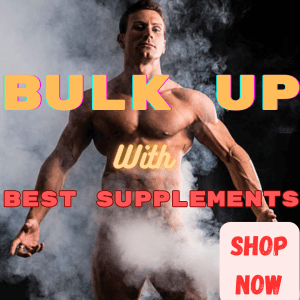
Bodybuilding Products
The Ultimate Guide to Foods That Support Hormonal Balance for Bodybuilders
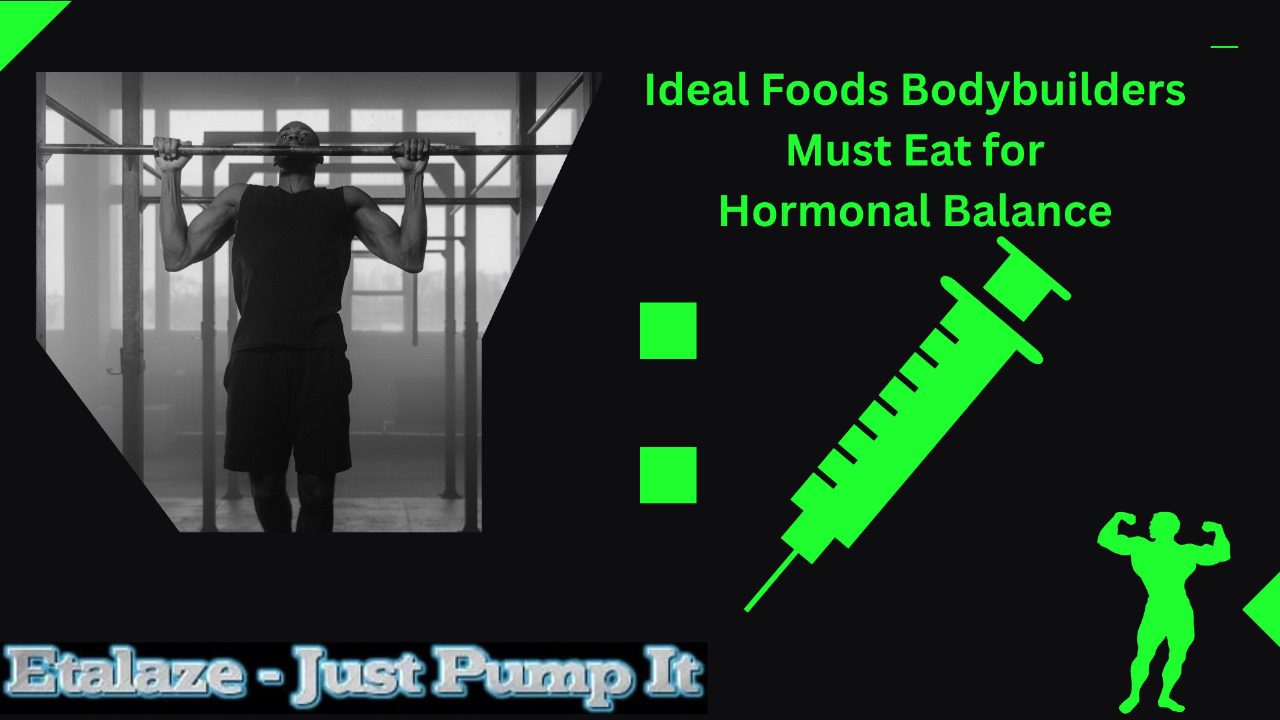
Hormonal balance is crucial for bodybuilders aiming to maximize muscle growth, recovery, and overall health. Testosterone, insulin, cortisol, and growth hormone all play vital roles in muscle development and fat metabolism. The right foods can help regulate these hormones naturally, ensuring peak performance and long-term well-being.
1. Protein-Rich Foods for Muscle Growth and Hormonal Support
Protein is essential for muscle repair and hormone production. Here are some of the best sources:
- Lean meats (chicken breast, turkey, lean beef)
- Eggs (rich in cholesterol, a precursor for testosterone)
- Fatty fish (salmon, mackerel, sardines—high in omega-3s)
- Greek yogurt (contains probiotics for gut health)
- Cottage cheese (rich in casein protein)
- Bone broth (supports collagen production)
- Lentils and chickpeas (plant-based protein sources)
2. Healthy Fats for Hormonal Regulation
- Fats play a crucial role in hormone synthesis, particularly testosterone.
- Avocados (rich in monounsaturated fats)
- Olive oil (supports heart health and hormone production)
- Coconut oil (contains MCTs for energy)
- Nuts (almonds, walnuts, Brazil nuts—selenium supports thyroid function)
- Seeds (flaxseeds, chia seeds, pumpkin seeds—omega-3s and zinc)
- Dark chocolate (contains healthy fats and antioxidants)
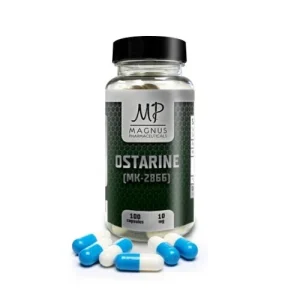 Buy Ostarine MK 2866 100 by Magnus Pharma
Buy Ostarine MK 2866 100 by Magnus Pharma
3. Carbohydrates for Energy and Cortisol Control
Carbs help regulate cortisol levels and provide sustained energy.
- Sweet potatoes (complex carbs with fiber)
- Oats (slow-digesting carbs for steady energy)
- Quinoa (high in protein and fiber)
- Brown rice (supports glycogen replenishment)
- Whole wheat bread (better than refined grains)
- Bananas (potassium for muscle function)
- Berries (antioxidants to reduce inflammation)
Must Read: Top 10 best Immune Boosting Supplements to Buy in 2025
4. Crucial Micronutrients for Hormonal Balance
Certain vitamins and minerals are essential for hormone regulation.
- Spinach (magnesium for testosterone production)
- Kale (supports estrogen metabolism)
- Broccoli (contains indole-3-carbinol for hormone detoxification)
- Carrots (beta-carotene for overall health)
- Bell peppers (vitamin C for cortisol control)
- Mushrooms (vitamin D for testosterone support)
- Garlic (boosts testosterone and reduces cortisol)
5. Hydration and Hormonal Health
Proper hydration is often overlooked but is essential for hormone function.
- Water (fundamental for all bodily functions)
- Green tea (contains catechins that support metabolism)
- Herbal teas (chamomile, peppermint—reduce stress)
- Coconut water (electrolytes for hydration)
- Bone broth (supports gut health and hormone balance)
Foods That Disrupt Hormonal Balance in Bodybuilders
1. Processed and Fast Foods
Highly processed foods contain trans fats and excessive sodium, which can negatively impact testosterone levels and overall metabolic health.
- Fried foods (French fries, fried chicken—linked to inflammation)
- Processed meats (hot dogs, sausages—contain preservatives that may disrupt hormones)
- Fast food burgers (often high in unhealthy fats and additives)
2. Sugary Foods and Beverages
Excess sugar can lead to insulin resistance and increased cortisol levels, hindering muscle recovery.
- Soda and energy drinks (loaded with sugar and artificial sweeteners)
- Candy and pastries (spikes insulin, leading to fat gain)
- Sugary cereals (refined carbs with little nutritional value)
3. Alcohol and Excessive Caffeine
Related Article: Ostarine For Beginners: The Ultimate Guide
Alcohol can lower testosterone levels, while excessive caffeine can increase cortisol, leading to muscle breakdown.
- Beer and spirits (disrupts testosterone production)
- Excessive coffee (moderation is key—too much raises cortisol)
- Sugary cocktails (combines alcohol and sugar, a double hit to hormones)
4. Soy-Based Products
Soy contains phytoestrogens, which may interfere with testosterone levels when consumed in excess.
- Soy milk (opt for almond or coconut milk instead)
- Tofu and soy protein isolates (moderation is advised)
- Edamame (occasional consumption is fine, but avoid excess)
5. Artificial Sweeteners and Additives
Certain artificial sweeteners can negatively impact gut health, which plays a role in hormone regulation.
- Aspartame and sucralose (found in diet sodas and sugar-free snacks)
- Highly processed protein bars (often contain artificial ingredients)
- Packaged snacks (chips, crackers—loaded with preservatives)
Check Out Dragontropin HGH 100 IU by Dragon Pharma
Overall
A well-balanced diet rich in protein, healthy fats, complex carbohydrates, and essential micronutrients can significantly impact hormonal balance for bodybuilders. By incorporating healthy, rather than junk foods into your daily regimen, you can optimize muscle growth, recovery, and overall well-being.
Steroids
AOD-9604: The Fat-Burning Peptide Explained
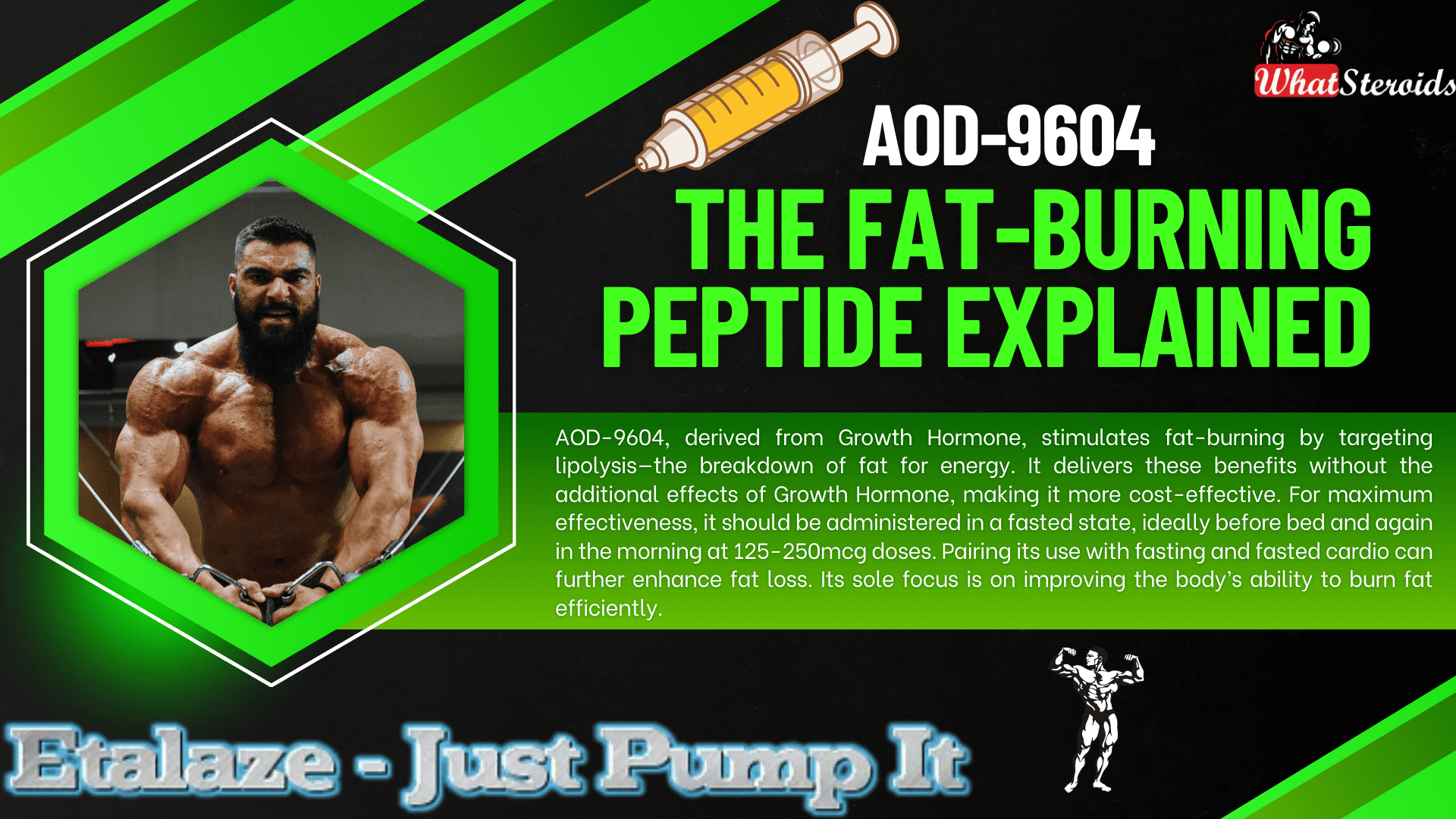
AOD-9604, along with the similar HGH Frag 176-191, is a peptide derived from Growth Hormone that includes only the amino acids in HGH responsible for stimulating fat breakdown, known as lipolysis.
This means that these peptides offer the fat-burning benefits of HGH without its other effects—whether beneficial or adverse—and come at a lower cost.
Related Article: Anavar Cycle for Men and Women
Lipolysis refers to the process where fat cells are broken down to be utilized as energy. AOD-9604 promotes accelerated fat loss by increasing the body's use of fat as fuel.
For optimal results, the peptides should be used in a fasted state. AOD-9604 and Frag 176-191 are most effective when administered at a dose of 125-250mcg before bedtime (at least 3-4 hours after eating) and in the morning at the same dose, followed by a fasting period of 3-4 hours, ideally combined with fasted cardio.
Check Out Dragontropin HGH 100 IU by Dragon Pharma
Similar Peptides with Fat-Burning Effect
Here’s a list of 10 peptides similar to AOD-9604, each with a brief description:
Ipamorelin: A growth hormone-releasing peptide (GHRP) that stimulates the natural release of growth hormone, promoting fat loss, muscle growth, and improved recovery without affecting other hormones like cortisol or prolactin.
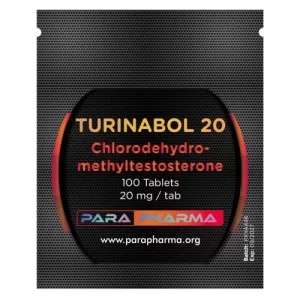 Click Here to Buy: Turinabol 20 by Para Pharma
Click Here to Buy: Turinabol 20 by Para Pharma
CJC-1295: A peptide that increases growth hormone and IGF-1 levels, aiding in fat loss, muscle gain, and improved sleep quality. It has a long half-life, making it convenient for users.
HGH Frag 176-191: A fragment of human growth hormone specifically designed for fat-burning. It targets adipose tissue without the broader effects of full-length HGH.
Tesamorelin: Known for reducing visceral fat, this peptide stimulates the release of growth hormone and is often used for weight management and metabolic health.
BPC-157: While primarily known for healing and recovery, BPC-157 can support fat loss indirectly by improving gut health and reducing inflammation.
Melanotan II: Originally developed for skin tanning, it also has appetite-suppressing properties, making it useful for weight management.
Thymosin Beta-4 (TB-500): Focused on healing and recovery, it can enhance physical performance and indirectly support fat loss through improved activity levels.
GHRP-6: A growth hormone-releasing peptide that boosts appetite and metabolism, aiding in muscle growth and fat loss.
Semaglutide: A GLP-1 receptor agonist that regulates appetite and blood sugar levels, making it effective for weight loss and metabolic health.
MK-677 (Ibutamoren): A growth hormone secretagogue that increases growth hormone and IGF-1 levels, promoting fat loss, muscle gain, and improved recovery.
List of Peptides With a Counteractive Effect Bodybuilders Must Avoid
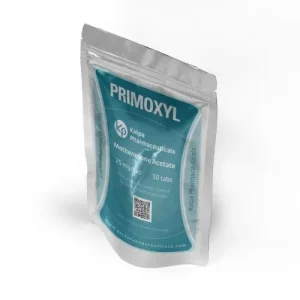 Click Here to Buy Primoxyl 25 by Kalpa Pharmaceuticals
Click Here to Buy Primoxyl 25 by Kalpa Pharmaceuticals
Some peptides can inadvertently lead to fat gain due to their effects on metabolism and appetite regulation. Here are a few that bodybuilders might want to avoid or use cautiously:
- GHRP-6 – While it stimulates growth hormone release, it also significantly increases appetite, which can lead to excess calorie consumption and fat gain.
- IGF-1 LR3 – This peptide enhances muscle growth but can also promote fat storage if not carefully managed with diet and training.
- MK-677 (Ibutamoren) – Though technically a growth hormone secretagogue rather than a peptide, it boosts GH levels but often leads to increased hunger and potential fat accumulation.
- CJC-1295 with DAC – While effective for muscle growth, its prolonged GH release can sometimes lead to unwanted fat retention if not paired with a strict diet
Overall
AOD-9604, derived from Growth Hormone, stimulates fat-burning by targeting lipolysis—the breakdown of fat for energy. It delivers these benefits without the additional effects of Growth Hormone, making it more cost-effective. For maximum effectiveness, it should be administered in a fasted state, ideally before bed and again in the morning at 125-250mcg doses. Pairing its use with fasting and fasted cardio can further enhance fat loss. Its sole focus is on improving the body’s ability to burn fat efficiently.
Read More: How Much Do You Know About B-AET? A Fat Burner You’ve Been Missing
-
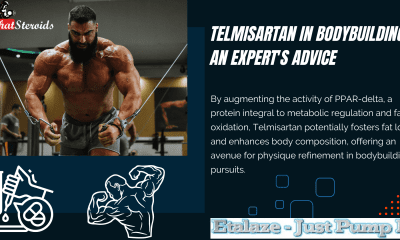
 Bodybuilding Products1 year ago
Bodybuilding Products1 year agoTelmisartan In Bodybuilding: An Expert’s Advice
-

 Nutrition2 years ago
Nutrition2 years agoEverything Nutritional Food: What’s Too Much Or Too Little
-

 Anabolic Steroids12 months ago
Anabolic Steroids12 months agoJoint Stiffness: How to Manage It While on AAS
-
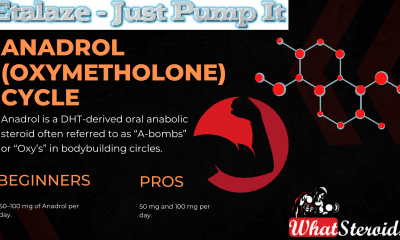
 Steroids1 year ago
Steroids1 year agoAnadrol Cycle: Benefits, Doses, Alternatives, etc.
-
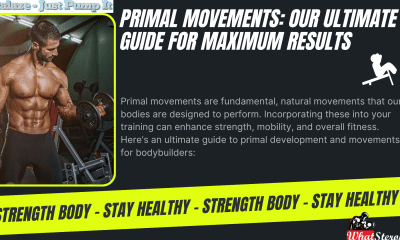
 Bodybuilding10 months ago
Bodybuilding10 months agoPrimal Movements: Our Ultimate Guide for Maximum Results
-

 Bodybuilding2 years ago
Bodybuilding2 years agoChia Seeds in A Bodybuilder’s Diet: An Expert’s Advice
-
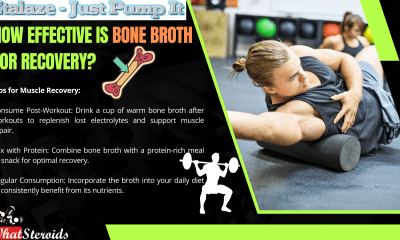
 Bodybuilding11 months ago
Bodybuilding11 months agoHow Effective is Bone Broth for Recovery?
-
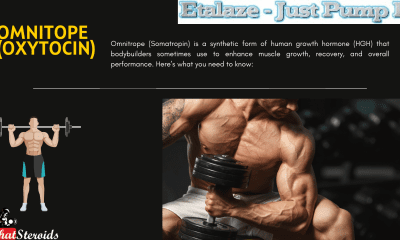
 Steroids1 year ago
Steroids1 year agoOmnitope (Oxytocin)
-

 Steroids11 months ago
Steroids11 months agoSleeping Positions for Effective Muscle Recovery
-

 Bodybuilding1 year ago
Bodybuilding1 year agoHow Much Is Too Much Cardio? Understanding Heart Rate Zones
-
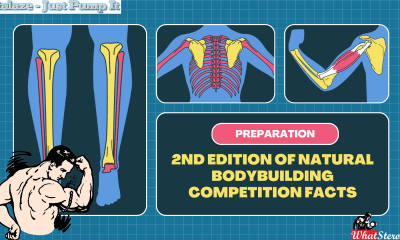
 Bodybuilding10 months ago
Bodybuilding10 months ago2nd Edition of Natural Bodybuilding Competition Facts
-

 Bodybuilding2 years ago
Bodybuilding2 years agoCalorie Dumping: A Bodybuilder’s Guide
-
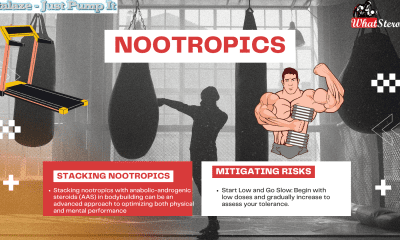
 Bodybuilding11 months ago
Bodybuilding11 months agoAre Nootropics a Better Option to AAS?
-
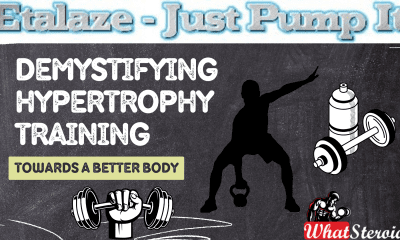
 Bodybuilding1 year ago
Bodybuilding1 year agoDemystifying Hypertrophy Training
-
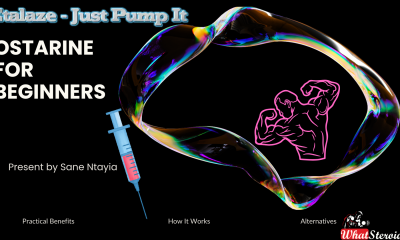
 Steroids6 months ago
Steroids6 months agoOstarine For Beginners: The Ultimate Guide
-

 Steroids8 months ago
Steroids8 months agoBodybuilder Winter Clothing: Staying Warm and Stylish
-

 Bodybuilding7 months ago
Bodybuilding7 months agoTop Video Games for Bodybuilders in 2025
-
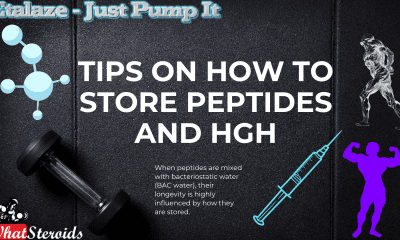
 Steroids6 months ago
Steroids6 months agoTips on How to Store Peptides and HGH
-

 Beginners2 years ago
Beginners2 years agoTren Cycle for Beginners
-
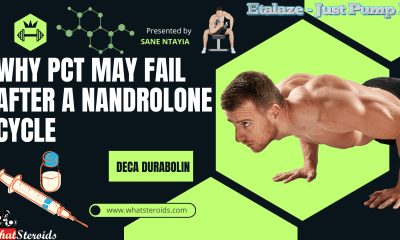
 Steroids5 months ago
Steroids5 months agoWhy Post-Cycle Therapy (PCT) Fails After a Nandrolone Cycle
-
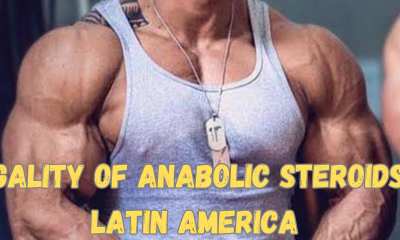
 Anabolic Steroids2 years ago
Anabolic Steroids2 years agoLegality of Anabolic Steroids In Latin America
-
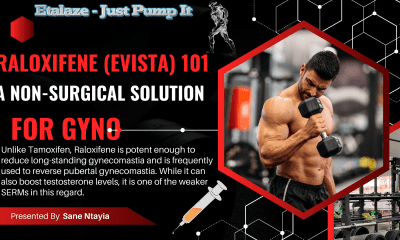
 Steroids4 months ago
Steroids4 months agoRaloxifene (Evista) 101: A Non-Surgical Solution for Gyno
-

 Beginners7 months ago
Beginners7 months ago14 Morning Run Safety Tips for Bodybuilding and Fitness
-
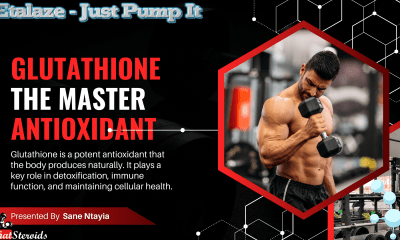
 Steroids7 months ago
Steroids7 months agoGlutathione – The Most Underrated Antioxidant
-
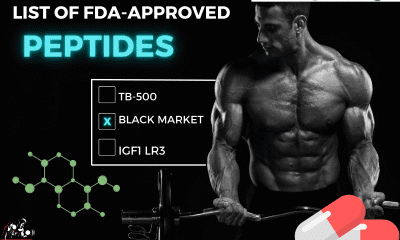
 Bodybuilding1 year ago
Bodybuilding1 year agoList of FDA-Approved Peptides















